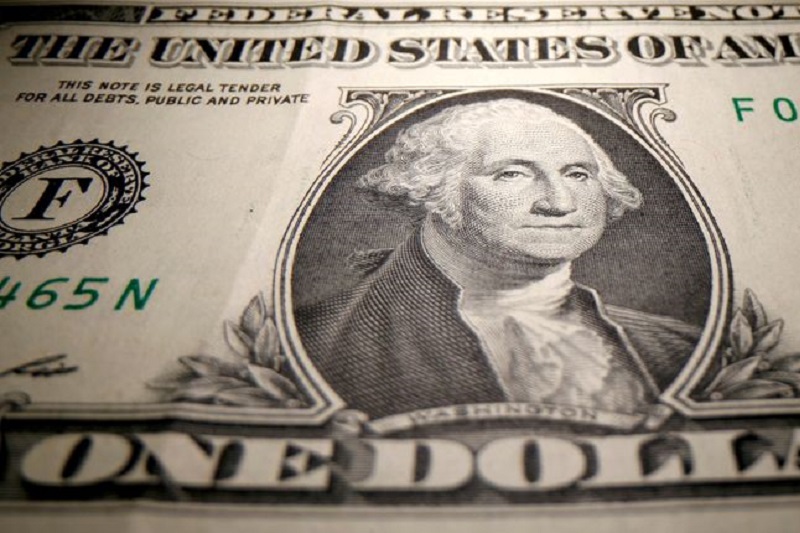 © Reuters
© Reuters
By Peter Nurse
Investing.com - The U.S. dollar edged higher in early European trade Friday, on course to post another positive week, amid caution ahead of next week's crucial inflation data release.
At 03:00 ET (07:00 GMT), the Dollar Index, which tracks the greenback against a basket of six other currencies, traded 0.1% higher at 103.207, and is set to post its second straight positive week, a run it has not had since October.
The index has traded in a relatively tight range this week as traders digest economic data and try to parse speeches from a series of Fed policymakers for clues of the likely future pace of the Federal Reserve's rate hikes.
The number of Americans filing new claims for unemployment benefits increased more than expected last week, rising for the first time in six weeks, but remained historically low.
And thus it’s the inflation portion of the Federal Reserve’s dual mandate which is dominating thinking as far as monetary policy is concerned.
Fed Chair Jerome Powell took a fairly dovish stance in a speech earlier this week, reiterating his belief that disinflation was underway, but his Fed colleagues have tended to express their desire for further rate hikes as the week has progressed.
Federal Reserve Bank of Richmond President Thomas Barkin was the latest to comment on Thursday.
“With demand slowing but still resilient, labor markets healthy and the added and unfortunately enduring shock of the war in Ukraine, it shouldn’t be a surprise that inflation — while likely past its peak — is still elevated,” Barkin said. “That, of course, is what makes the case for us to stay the course.”
This brings next week's U.S. CPI data, due on Tuesday, firmly into focus, as it will shed further light on whether disinflation is well and truly underway.
Elsewhere, EUR/USD traded 0.1% lower at 1.0726, USD/JPY largely unchanged at 131.59, and the risk-sensitive AUD/USD fell 0.2% to 0.6923.
GBP/USD fell 0.1% to 1.2105 after data released Friday showed U.K. gross domestic product fell 0.5% on the month in December, however GDP was unchanged in the fourth quarter, meaning the country's economy just avoided entering a technical recession after falling 0.3% in the July-September quarter.
USD/CNY rose 0.3% to 6.8013 after data showed consumer price inflation grew less than expected in January, while producer price inflation fell further during the month.
China’s economy is trying to recover from three years of restrictive COVID policies, and these numbers suggest it still faces a long road to reaching pre-pandemic levels of growth.

